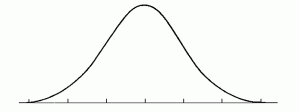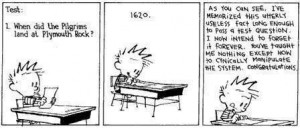
You know when three days go by so quickly
And you think, “Oh dear, where did the time go?”
You spent the whole time feeling happy and free and without stress
And when you think about it
You actually did so many different things that you felt empowered as a human being.
And you did it with nature and other human beings, not wifi! Of course there is a time and place for wifi but it doesn’t have to run your life all of the time.
Our long weekend consisted, amongst other things of
Family home grown learning: waffles, cricket, scattergories & long walks on the beach.
It was wonderful to see and hear our children, two families, five kids ranging in age from 10-22, play games, not of the electronic variety, but ‘real’ games where there was much interaction and conversation, and laughter and fun!
Yes, lots of fun, in fact at times they would not even bother to pack up the games at meal times, content to just keep playing as they chewed through their homemade pizza and sausages.
And when they weren’t playing ‘real’ games they were outside painting their nails, sitting and lying on towels in the backyard, talking and giggling their time away (even Master Ten was willing to have his nails done). And don’t think it was frivolous talk. In fact they were discussing novels they had read and comparing them to the corresponding films!
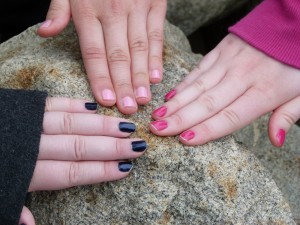
Then came the cricket games, not your conventional type but just bowling and batting and fielding and catching, one would call it, the freelance variety, that took place anywhere and everywhere, where skill didn’t matter, it was all about the fun!
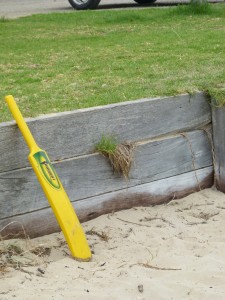
Long walks to the beach and then along it up and down, feet wading in the ocean, or almost gliding across the water logged sand dodging the tide as it came chasing you, threatening to ruin your brand new nikes but secretly not really caring ’cause, “Hey, who cares when you’re having this much fun!”
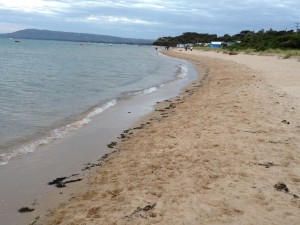
Then there was the making of rudimentary dams near the water’s edge, digging out the heavy wet sand with your cricket bat and watching the water roll on in and promptly glide away.
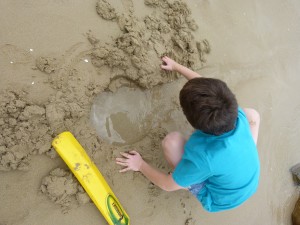
Saturday morning began with a list of adventures. Not like climbing Mt Everest but just the casual list of things we wanted to do on a lazy day near the beach.
First we picked strawberries, laughing and discussing our finds, “Mum, mum, take a photo of this! I found the perfect strawberry!”

Next on the list was the wine for our picnic lunch.
Yes, we actually stopped off at a winery, tasted the wines before choosing a lovely Juliet Pinot Noir to go with our luncheon.
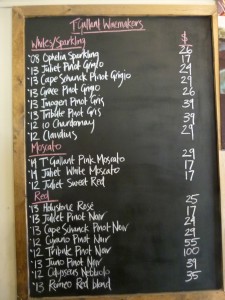
Third adventure: A-Mazing!
Personally, I don’t really like mazes but with the promise of a lolly I couldn’t disappoint Master Ten, so I tried the first one – but after that no more – they went ahead…and emerged triumphant!
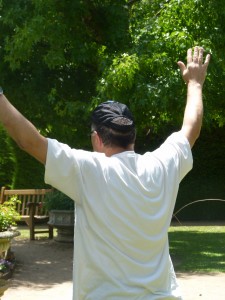
Me? I used the hedge gate and found myself in beautiful tranquil gardens.
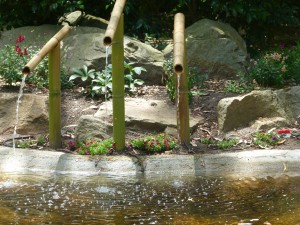
And then it was picnic time, mind you very late in the day by now. Couldn’t get it out fast enough.
We were starving!!
And what did they do after that? They played another ‘real’ game of course- this time it was cards!
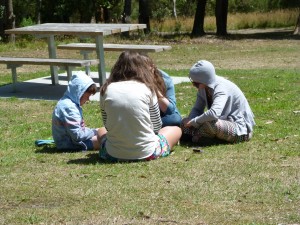
Sunday morning found us making waffles – well one person made them – we just ate them – with the strawberries we picked ourselves, ice-cream and real maple syrup!

This was followed by more long walks on the beach, cricket, and playing ‘real’ games!
What did we learn from this adventurous long weekend?
Personally I found it very satisfying to see our children, no matter what age conversing and collaborating, holding discussions that were more that just idle gossip. They didn’t spend their time posing for ‘selfies’ to post on social media sites. Instead they played together, they built ginger bread houses, they helped each other, they cleaned up their mess and they took time out to be silent and read. They didn’t complain about being bored, they just moved from one activity to another continually checking to see that all were okay with the decision.
We discussed books, travel, memories, experiences, and even their hopes and dreams for the future. I caught them collaborating when playing their games and guiding the youngest so he did not feel neglected. Every activity was inclusive and negotiated. They all had an opportunity to contribute and simultaneously feel empowered to make decisions and display leadership…seems odd but I tell you it was all there.
Young and old it didn’t really matter.
These are real life skills. This is how the real world works, developing relationships, collaborating, empowering, using our talents to make the world a better place for our being there.
AND
There was no wifi … AND … we didn’t miss it!
Sunday night…Now, where’s my laptop quick, #aussieED chat starting NOW.
Thanks for reading 🙂


